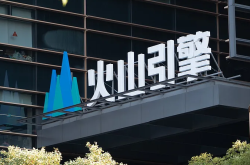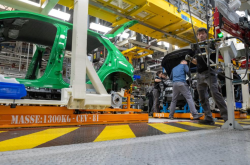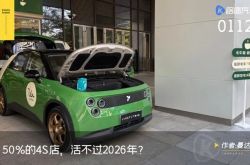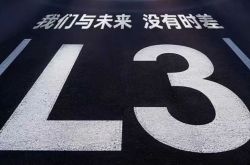Supposing Luobo Express is in the United States
![]() 07/16 2024
07/16 2024
![]() 623
623

The Dilemma of Luobo Express: A Good Technology Meets an Inopportune Time?
By She Zongming
"Run Lola Run" lives in montage, while Luobo Express is lost in confusion.
A good technology meets an inopportune time, and it's impossible not to be confused.
In recent days, Luobo Express's large-scale rollout in Wuhan has triggered polarized public opinions—
Many people see Luobo Express as charming, and Luobo Express sees them the same way.
They believe that driverless taxis offer low prices and good service, eliminating concerns about drivers smoking in the car or getting angry on the road. Passenger-driver conflicts are gone, and the trouble of no one accepting orders on rainy days is reduced. It's a complete blessing for introverts.
If human problems can't be solved, let technology solve them. This is the answer given by the steam engine across time.
There are also many people who can't wait to tell Luobo Express to "get lost."
They believe that the current job market is "too many radishes, too few holes," and that driverless taxis are coming to steal the jobs of ride-hailing drivers. Do they want the employment data to look too good?
Driverless is fine, but unmanned cannot equal inhuman. Otherwise, it's not a blessing but a curse. This is their view.
So I couldn't help but lament in my article, "The 'Injustice and Resentment' Borne by Luobo Express":
Luobo Express's mass rollout seems to come at the right time, as China's autonomous driving industry needs to seize opportunities by implementing it globally; yet it also seems very inopportune because it will steal opportunities from ride-hailing—in the current context, driving for ride-hailing platforms is a fallback employment option for many people.
Autonomous driving is a new kind of productive force, connected to the future; employment for the people is a top priority for people's livelihoods, connected to reality. In the face of a collision between the future and reality, how should we choose?
Perhaps we can think about it in a different context: Suppose Luobo Express is in the United States, what kind of public opinion reaction would it provoke?
01
The first wave of driverless fever in 2024 came earlier than many people expected.
A year ago, many people wouldn't have imagined that so many Luobo Express vehicles could hit the streets in Wuhan's Economic and Technological Development Zone so quickly.
After all, the past year hasn't seen too many new stories in the field of autonomous driving: autonomous driving wants to walk the red carpet, but generative AI has taken center stage, leaving it to stand aside.
Many internet and automotive companies boast about their intelligent driving capabilities, but when you ask them, "I call you L3, dare you answer?" they look up at the advertising laws hanging overhead and immediately pretend to be deaf.
Didn't Kevin Kelly say, "Half of the journey is 90 percent of the effort"? No, I got it wrong. In autonomous driving, achieving 98% safety is not a difficult task, but the harder part comes later... The last 2% is the most difficult and time-consuming, and it's arduous to make that final breakthrough.
Waymo, the autonomous mobility service provider under Alphabet, which is widely recognized as the global leader in autonomous driving, said: Shall I give it a try?
The result? Try and fail: In the second half of 2023, Waymo and Cruise's driverless taxis ran in the San Francisco area for a while, successfully running out of their operating qualifications—they wanted to run, but sudden shutdowns, dragging pedestrians, collisions with fire trucks, and blocking ambulances didn't allow it.
How many sorrows can one have? It's like high-level autonomous driving constantly stumbling.
But things have been changing this year.
During this time, Tesla's share price has soared, directly pulling Tesla back into the top ranks after almost being expelled from the "U.S. stock market's Big Seven" camp.
The reason is simple: Tesla's FSD (Full Self-Driving) has made new progress. At the end of June this year, Tesla introduced a new version of its FSD system—FSD v12.4.2. On July 1, He Xiaopeng, Chairman of XPeng Motors who has experienced Tesla's FSD, predicted that Tesla's FSD would surpass Waymo by 2025.
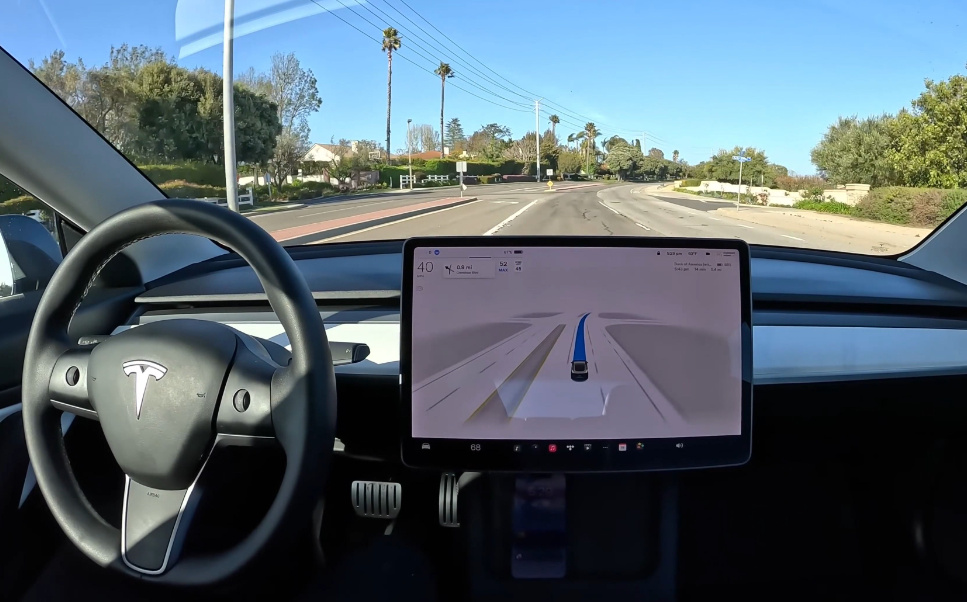
▲Musk has been touting Tesla's FSD for a long time.
Musk had originally announced that Tesla would release its driverless taxi product, Robotaxi, on August 8. But a couple of days ago, he played a trick, saying it would be postponed to October. Very Musk-like.
Upon seeing this, Baidu chimed in: Little Musk, you're not in a hurry, so I won't be polite.
Wuhan replied: If you dare not be polite, I dare to accommodate you.
Then it pulled out a big gift: the longest open-test road mileage for intelligent and connected vehicles in the world.
So both parties embarked on a two-way journey: Baidu needs Luobo Express's "first crab eater" status to redeem its IDG (Intelligent Driving Group) business, while Wuhan needs Luobo Express to help realize its dream of becoming "the world's first city in autonomous driving."
Drinking the first sip of soup flavored with hot and dry noodles, Luobo Express felt refreshed all over.
02
Luobo Express is happy, but many people are not: Radish, are you better stewed with beef or simmered with chicken?
Writing a joint letter requesting the suspension of Luobo Express has become a way for some ride-hailing drivers to block it.
It's not surprising that these ride-hailing drivers lack a big-picture perspective: For them, the grand narrative of great power rivalry is ultimately abstract, while their livelihoods are concrete. They may not know the strategic significance of autonomous driving for China, but they understand the significance of driving for ride-hailing platforms for their own survival and development.
Nor can it be blamed on some members of the public for lacking a global perspective: For them, the self-identity of "workers" and anti-capital sentiment make it easier for them to empathize with ride-hailing drivers rather than the platforms.
In reality, many people already have strong "AI job replacement" anxiety, fearing that "AI will take our path, leaving us nowhere to go," and worrying that the scenario in the movie "The Matrix" where humans are replaced by AI and the description in "Homo Deus" that "in the future, the vast majority of people will become useless and replaceable by AI, while a very small minority will become gods驾驭AI" will really come true.
In the past, this anxiety could be soothed by the argument that "AI will not replace humans, it will only become a tool for humans." But now, the situation where driverless taxis are "revolutionizing" the lives of ride-hailing drivers is unfolding. Can the anxiety of "AI abandons you without even saying goodbye" not explode?
Dodging layoffs by bosses but not dodging AI optimization, it's inevitable to feel unhappy and dissatisfied.
A more practical problem is, what about the livelihoods of millions of ride-hailing and taxi drivers?
In the current context where "slow employment," "light employment," and "micro-employment" reveal the severity of the employment situation, eliminating even one job opportunity is equivalent to accumulating one more risk.
Ride-hailing drivers were already in a bad mood when they saw the trending topic that "Guangzhou ride-hailing drivers earn no more than 10,000 yuan a month without taking a day off."
At this time, Luobo Express popped up and said, "Speaking of not taking a day off, I'm not tired at all," flaunting its ability to accept orders 24 hours a day.
Naturally, it was time for those ride-hailing drivers to teach them how to write the character "anger" in six different ways.
03
Subsequently, Luobo Express found itself sandwiched: blocked by some people in front and pressed by Tesla from behind.
Luobo Express can't afford to be too slow because Tesla is gearing up.
If it doesn't hit the road soon, Tesla will seize the initiative—at the end of April this year, Musk's "whirlwind" visit to China cleared the obstacles for Tesla's FSD (Full Self-Driving) to land in China.
For a long time, Baidu's autonomous driving and Tesla's FSD have taken two different routes: the former uses lidar sensors, while the latter takes a pure vision approach—Musk once mocked, "Only fools use lidar."
Luobo Express's rollout upholds Baidu's "technological confidence."
Therefore, if it can go 70 miles per hour, it won't go 30.
Luobo Express also can't afford to be too fast because ride-hailing drivers have clenched their fists.
With one sentence, "I represent technological progress," you want to take away so many people's jobs. Does "driverless" mean arrogant "unmanned"?
Don't say that the employment compensation effect brought by AI will hedge, dilute, or make up for the substitution effect brought by AI. AI-driven job substitution will be imminent, while employment compensation will be further away. Moreover, there is a structural imbalance between the two: ride-hailing drivers are easily replaced by driverless taxis but may not benefit from the new job opportunities they bring.

▲Zhou Hongyi suggested that Luobo Express sell its cars to taxi drivers, which is obviously a bad idea.
Carbon-based organisms can best empathize with the situation where carbon-based beings are dimensionally downgraded by silicon-based ones.
I can't help but sympathize with the situation of ride-hailing drivers—some people describe them as swimming against the tide of "the trend of the times, surging forward grandly" and see them as those who smashed machines during the Industrial Revolution. This is unfair to them: If there were other options, would they flock to drive for ride-hailing platforms?
Their survival and development needs deserve to be taken seriously.
Therefore, it is inevitable that Luobo Express finds itself in a dilemma.
04
Looking at the controversy caused by Luobo Express, some people across the ocean might say: This episode is familiar to me, isn't it just a game between the e/acc (effective accelerationism) and EA (effective altruism) camps?
Inventors who traveled through time from centuries ago might also feel a sense of deja vu: Isn't this a continuation of "technological supremacy vs. Luddism"?
At first glance, it indeed seems so.
Today's ride-hailing drivers protest against driverless taxis, just as taxi drivers protested against ride-hailing platforms yesterday, coachmen protested against taxis the day before yesterday, and sedan chair bearers protested against coaches the day before that.
In such controversial events, both sides are right because they are simply talking about the A and B sides of the same thing.
From the perspective of cutting-edge technological development, perhaps what is seen is the positive externality of Side A.
From the perspective of people's livelihood security, what may be seen is the negative externality of Side B.
From a long-term historical perspective, Side A seems more important.
From a current perspective, Side B seems to be the fundamental aspect.
But simply viewing the controversy caused by Luobo Express as a battle between e/acc and EA is too simplistic.
As I said before, if Luobo Express had been launched 10 years ago, the controversy caused by its rollout might not have been as intense as it is now. At that time, with the blessing of the "new economy filter," new technologies like autonomous driving and new business forms like driverless taxis could easily occupy the high ground and win social recognition by narrating the story of "cars vs. carriages."
Plus, there were many entrepreneurial and employment opportunities at that time. Your resistance to taking away taxi drivers' jobs would ultimately be limited—just as when ride-hailing platforms disrupted the taxi market, public opinion was almost unanimously on the side of ride-hailing. At that time, people saw ride-hailing platforms as representing "steam engines" and taxis as representing "carriages," and the replacement of old by new was natural.
Now what?
The "anti-capital" sentiment has long since broken down the inclusive atmosphere under the "new economy filter," and Luobo Express has also had to be dragged down by the heavy reality of "economic growth under pressure—severe employment situation—tight employment reservoir."
We all know that technological development always has two sides.
The current issue is that the negative externalities of autonomous taxis are being exacerbated by harsh realities.
05
Imagine if RoboTaxi were to hit the roads in the United States - what kind of reactions would it elicit?
Would there be opposition? Most likely, yes.
But mainstream discourse would probably focus more on whether it is safe and who would be responsible in the event of an accident.
From Waymo to Tesla's FSD, large-scale deployment has faced challenges primarily due to safety and liability concerns.
However, in our context, the key reason for opposition is its impact on the livelihoods of ride-hailing drivers.
There's no avoiding it. The employment reservoir is too shallow.
Previously, the education, real estate, and internet industries were the largest employment reservoirs, but now... let's just say this section could be filled with numerous ellipses.
A dammed lake always needs an outlet; if all the reservoirs are blocked, a flood is inevitable.
Ride-hailing, delivery, and food delivery services are those three reservoirs.
So, this is the dilemma RoboTaxi finds itself in.
Many remain silent about the mysterious forces blocking the employment reservoirs, yet express various grievances about new technologies "taking over" these reservoirs.
The truth is, RoboTaxi struggles to resolve the problems it creates.
The solution lies in improving social structures—like finding ways to increase job opportunities. This would provide enough of a buffer for the new technology to be implemented.
The root cause of the resistance to RoboTaxi by some is the narrow buffer zone, forcing technological advancement and livelihood security into a "zero-sum game."
06
On one hand, the technological wave of autonomous driving is upon us.
He Xiaopeng recently predicted, "By 2025, the top car companies will enter the era of AI-driven autonomous driving akin to ChatGPT, and by 2026, partial autonomous driving in certain scenarios will be achieved." It is highly likely that we will enter a heated phase of competition in the deployment of autonomous driving in the next couple of years.
Today, you might resist RoboTaxi, but tomorrow you might not be able to resist CabbageExpress or CornSprint.
You might stop RoboTaxi from running, but you can't prevent the green lights being given to Waymo and Tesla FSD across the ocean.
Even if you are a staunch supporter of the "Red Flag Act," you can't change the overarching trend.
The only thing you can change is your position in the technological competition among great powers.
Brian Arthur, in "The Nature of Technology," said: "It is technology that separates us from the medieval times. Indeed, it is technology that has separated us from the way of life we had for 50,000 years or more. Technology has incomparably created our world; it has created our wealth, our economy, and our way of existence."
Hindering technological progress will undoubtedly come at a heavy price in the future.
Those who are being choked should have the awareness not to tighten the noose further around their necks.
On the other hand, the "supply-demand imbalance" in the employment reservoir is evident.
He Caitou mentioned that the cleaning, maintenance, and repair of autonomous vehicles, along with the intervention in abnormal situations, will create job types that may not have existed before.
However, the mass emergence of these new job types takes time, and "laid-off workers" might not be able to afford even a day's wait.
Those who can only make a living by driving for ride-hailing services shouldn't become the cost of technological progress.
This cost could have been transferred—if the employment reservoir were large and deep enough.
But reality, like Atlas, shrugged: "Sorry, there are no such ifs; it's all a result of your own choices."
A truly cruel tale of reality.

